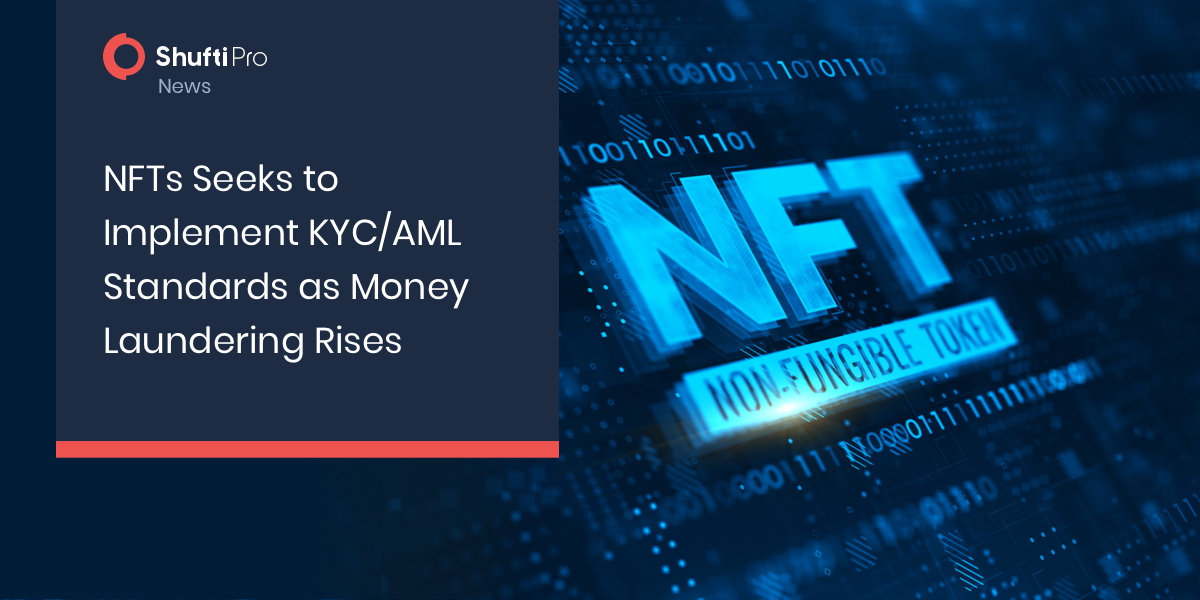NFTs Seek to Implement KYC/AML Standards as Money Laundering Rises

NFTs (Non-Fungible Tokens) are certainly becoming popular in the crypto industry. However, they do not come without their problems. NFTs are currently facing the rising issue of money laundering.
NFTs have come to be known as the best way to launder money in the crypto industry. However, some industry experts claim that even though NFTs can be used in money laundering, there is still no proof that money laundering through NFTs is worse than the traditional method or the method used for other types of digital currency. They do support the idea of strict regulation of KYC/AML to curb this rising problem.
As the NFTs are quite new in the market, the experts are still gathering data and conducting research on how NFTs are being used for money laundering. Experts say that if most criminals have not already turned to NFTs for their illicit activities, they will sooner or later.
“I can only speculate how large it is today and how large it could become. Right now none of the major trading venues (such as OpenSea) seems to have KYC gathering or AML/CFT [Combating the Financing of Terrorism] screening for users so that could be exploited,” said Tim Swanson, the head of market intelligence for Clearmatics.
This just proves that the NFTs marketplace is ripe for money laundering and any criminal can take advantage of it. The real reason behind this point of view is the traditional art world, which is already infamous for money laundering. The authorities are concerned that laundering through NFTs are becoming a big problem and they are still contemplating if it will surpass the money laundering being done in the physical art world.
tldr mechanics of money laundering with NFT art:
Known account with large tax liability buys it from unknown account. Known account resells to 3rd account for significantly lower price realizing a loss that offsets previous tax liabilities.
rinse and repeat with oneself too. https://t.co/BYA59slyaV
— Tim Swanson (@ofnumbers) March 11, 2021
“My only thought as to why one might assume NFTs have a greater proportion of money laundering is that I’d assert that the crypto marketplace ‘might’ have more scams than the physical art world. There’s a lot of scamming in physical art, through counterfeiting,” said Yaya J. Fanusie, an Adjunct Senior Fellow and a researcher of national security implications of crypto-assets at the Center for a New American Security (CNAS).
The experts suggest that while identifying money laundering in the NFTs will be a demanding task but the digital nature of the NFTs will also make it an easier target for money laundering than the traditional art world.

 Explore Now
Explore Now













